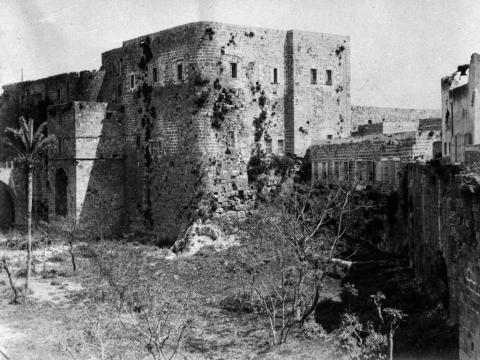In Europe, on one occasion, remembering the desperate days in Tihran when Bahá’u’lláh was incarcerated, their home sacked and their properties confiscated, ‘Abdu’l-Bahá could yet say, ‘Detachment does not imply lack of means; it is marked by the freedom of the heart. In Tihran, we possessed everything at a nightfall, and on the morrow we were shorn of it all, to the extent that we had no food to eat. I was hungry, but there was no bread to be had. My mother poured some flour into the palm of my hand, and I ate that instead of bread. Yet, we were contented.’
Contentment
Already as a child, the Master learned contentment. It was born of hardship. At a later time, He had good reason to write, regarding children, ‘accustom them to hardship’.
Once when ‘Abdu’l-Bahá was out walking two ladies saw Him and asked to be introduced to Him. They then asked Him about the Faith. They thought He must be extremely wealthy and did not hesitate to tell Him so. He replied, ‘My riches are of the Kingdom and not of this world . . . Although I have nothing, yet I am richer than all the world.’
The Master sometimes made His points through telling stories. Julia Grundy recorded the following story of His: ‘A master had a slave who was completely devoted to him. One day he gave the slave a melon which when cut open looked most ripe and delicious. The slave ate one piece, then another and another with great relish (the day being warm) until nearly the whole melon had disappeared. The master, picking up the last slice, tasted it and found it exceedingly bitter and unpalatable. “Why, it is bitter! Did you not find it so?” he asked the servant. “Yes, my Master,” the slave replied, “it was bitter and unpleasant, but I have tasted so much sweetness from thy hand that one bitter melon was not worth mentioning.”’
